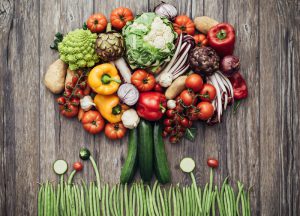Why a plant-based diet is a must to consider

With chronic diseases and conditions on the rise, being proactive about one’s health and nutrition is now becoming a priority. These days, more and more people are into consuming processed products as they are the ones that are readily available on the market. Heavily processed foods are unhealthy as they have added sugar, sodium, and artificial ingredients that lack nutritional value. A diet comprised mostly of whole foods that are rich in nutrients are the ones that are beneficial to the body so let me introduce to you a plant-based diet that will definitely change your lifestyle.
What is a Plant-Based Diet?
A plant-based diet emphasizes eating whole foods such as fruits, vegetables, and grains, and minimizing or completely eliminating any and all animal products. There are no strict guidelines on what constitutes a plant-based diet, so long as the individual consumes mostly whole foods with very few processed foods or refined sugars.

Plant-based is commonly interchanged with veganism, but the two are not one and the same.
Plant-Based vs. Veganism – What’s the Difference?
Vegans abstain from eating or using any and all animal products. It is a lifestyle change that excludes the use of animals for food, clothing, testing, or any other purpose. This means that vegans do not purchase anything that was made from animals, including leather goods, fur, and ivory, as well as products that have been tested on animals such as make-up, perfume, medications, and the like.
Studies have demonstrated that a plant-based diet may lead to lower rates of obesity, heart disease, diabetes, and certain types of cancers. That alone is reason enough for many to make the switch. If you need further convincing, here are seven other reasons why you should consider a plant-based diet:
- Animal food sources are injected with antibiotics.
- Livestock producers routinely give antibiotics to animals to help them survive the harsh and often unsanitary living conditions they are subjected to. It is also used to help them grow at a quicker rate and with fewer feeds. As a result, humans who consume animal products regularly are exposed to certain antibiotics in small doses, making them antibiotic-resistant. Antibiotic resistance threatens the success of future treatments and leads to the mutation of bacteria, making it harder for them to be treated.
- Animal sources are injected with growth hormones and steroids.
- In the early 1990s, the FDA approved the use of a growth hormone that, when injected, stimulates the production of milk in dairy cows. To this day, approximately 20 percent of all dairy cows in the U.S. have been injected with growth hormones to increase milk production. Cattle are injected with different hormones to spur growth, which means more profit for the producer.
- A plant-based diet promotes cardiovascular health.
- Heart disease is the number one leading cause of death in North America to-date. Every single day, over 2,000 Americans will die of some form of heart disease. By making the switch over to a plant-based diet, you can dramatically lower your risk of many cardiovascular health issues.
- A plant-based diet has been shown to decrease plaque that has accumulated in the blood vessels and also lowers your risk of stroke and diabetes.
- A plant-based diet helps reduce obesity rates.
- At present, nearly 70% of Americans are overweight or obese, and what’s interesting is that eating meat has been linked to the rise in obesity rates. Meat consumption, along with a diet that is high in refined sugar, is to blame, according to studies.
- Consider that meat and many other animal products are high in both calories and trans fat content. By making the switch to a plant-based diet, many people find that they lose weight even without counting calories, and more importantly, they feel better overall. On average, plant-based dieters are 20 pounds lighter than meat-eaters.
- A plant-based diet puts less stress on the digestive system.
- Many animal food products are extremely hard to digest and can cause bloating, diarrhea, acid reflux, and leaky gut syndrome. When the body is constantly bombarded with hormones, steroids, antibiotics, and bacteria, it has to work doubly hard to overcome these internal stressors. Combine poor food choices with unhealthy lifestyle choices such as smoking and binge drinking, it’s no wonder more and more people are getting sick. A plant-based diet that is comprised mostly of whole foods will supply your body with the energy it needs to repair and rebuild cells, without further taxing your system.
- A plant-based diet is high in fiber, which promotes satiety and healthy gut bacteria.
- The traditional Western diet is high in sugar, sodium, and fat. As such, it is considered ‘hyper-palatable’ and easily craved. However, it contains very little fiber, which means it is not nearly as satiating as a bowl of salad. This means that even after having a high-calorie meal, you can expect to feel hungry very soon after due to the lack of nutrients found in your food. With a plant-based diet, you get more than enough fiber from whole foods, which in turn promotes the proliferation of good gut bacteria. A healthy gut has been linked to a stronger immune system, hormone regulation, and less body fat in the abdominal region—all favorable outcomes no doubt.








